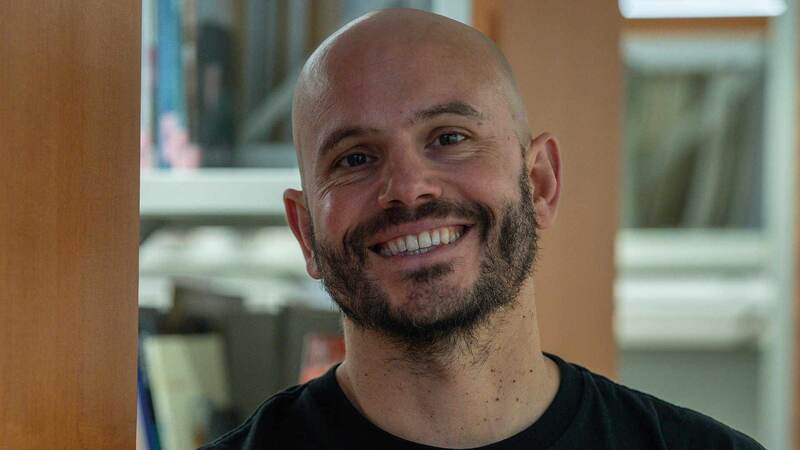You are viewing your 1 free article this month. Login to read more articles.
Author productivity is a publishing problem
Writers struggling to hit their deadlines are a sign of deeper issues in the industry.
George R R Martin was late delivering the sixth instalment of his A Song of Ice and Fire novel series. Over the years, frustrated fans speculated on his delay and procrastination, with one taking to the internet to ask advice of fellow writer Neil Gaiman. The fan, Gareth, complained: “It’s almost as though he is doing everything in his power to avoid working on it. Is it unrealistic to think that by not writing the next chapter Martin is letting me down?” Gaiman’s witty response was simple: “Writers and artists aren’t machines.”
I’ve worked in and around publishing for 20 years and over that time had many different roles. Thinking back, I’ve been guilty of treating authors like machines – sorry Neil.
Take one example where I had responsibility for a list of 200 titles. With forthcoming titles represented as a line on a spreadsheet an author was reduced to a unit of production. Publishing margins are increasingly tight, so the hard commercial reality was that each title, and by extension author, was assessed in terms of financial viability.
“Slippage” is the catch-all term publishers use for commissioned content that’s late, delayed or in one way or another, stuck in the pipeline. Submission delays carry a cost. For publishers, it’s a calculation. How much or little money was each title going to make across the financial year? How likely or unlikely was it that the title’s author would deliver on time?
Publishers experience slippage in different ways and some more than others. I spoke to a commissioning editor at one of the big five trade publishing houses who told me that slippage often comes from the “second book problem”. When successful debut authors are commissioned to write another book or a series, “writing paralysis” can kick in.
Slippage in non-fiction is common as many books are commissioned before they are written. When I submitted my first book, I casually asked my agent how many authors delivered on time, he replied, two out of a hundred! He might have been exaggerating but data is hard to find and commercially sensitive, but speaking to friends across the publishing, estimates vary from 25% to 60% of forthcoming titles failed to meet their original submission date. Anecdotally, certain genres or categories were more like to slip; literary writers had a reputation for delays compared to genre, and in academic writing, arts and humanities were less predictable than STEM submissions.
The blocks writers face are more complicated than many publishers acknowledge. Neil Gaiman is right, authors aren’t machines
Treating authors as machines happens gradually and for understandable reasons. Publishers are businesses and all businesses crave predictability. Publishers tend to see slippage as a business problem requiring a business solution. Editors are spread thin – under pressure to bring in more books they have less time to build relationships with authors. Advances used to provide financial incentive to encourage keeping to deadline, but with these declining in value, publishers are exploring other options. Many of initiatives are costly – I know of publishers who’ve invested in digital submissions platforms to reduce “friction” with automated communications giving authors nudges to submit.
After I left publishing, I started working directly with writers. As centre director for Lumb Bank, one of Arvon’s creative writing centres, I got to understand some of the reasons why people got stuck. As a writers’ retreat centre, people stayed with us for a week and everybody came with baggage – literally and figuratively. Writers failed to finish for a multitude of often deeply personal reasons, but it was never something a digital nudge solve.
As I continued to coach and support writers, I learned that personal blocks are exacerbated by structural ones. Debbie Taylor recently shared stats from a Mslexia survey; the limiting factors on women’s writing time were earning a living and housework, with caring responsibilities next. Writing was a "third shift" in already packed days.
In 2020 I collaborated on a study with the publisher De Gruyter looking at some of the barriers to writing and research during the Covid-19 pandemic. Yes, everyone was impacted by the pandemic, but some were impacted far more than others. Younger academics, particularly mid-career women juggling work and caring, were hit the hardest by lockdowns. As time pressures increased, their research productivity nose-dived and their submission rates declined. But not everyone was affected in the same way. Our survey found that senior, middle-aged, male academics became more productive and often had more time to write. They were able to sidestep domestic distractions in a way that others could not.
While of course, we should be grateful that some people were able to flourish over the pandemic, the research we conducted and my own experience suggests that the blocks writers face are more complicated than many publishers acknowledge. Neil Gaiman is right, authors aren’t machines. The structural inequalities they face, the nature of their blocks they have, and the way they experience time itself are personal to them.
Publishers will always experience financial pressures and business realities. But by understanding their authors, they will be better placed to support them as human beings rather than content creators – and that is good for diversity in publishing, for authors and for publishers alike.




















